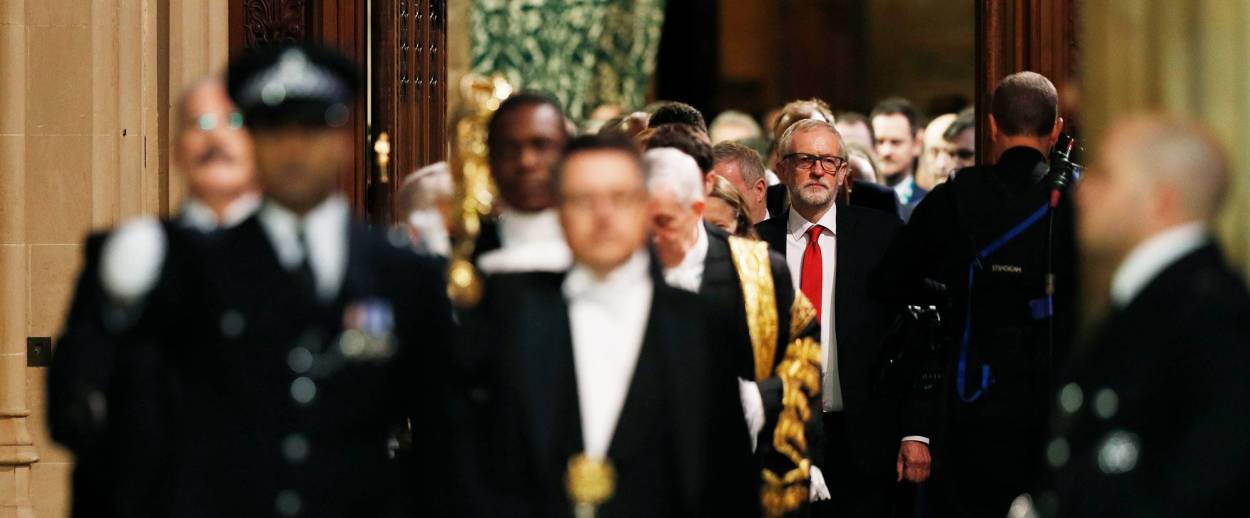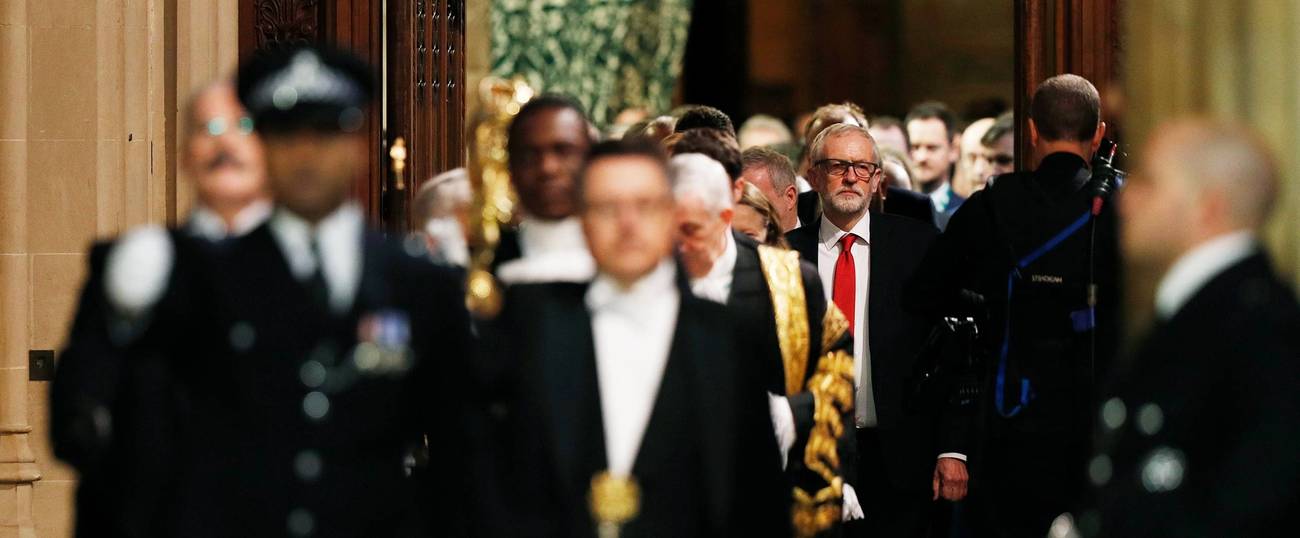On a British University Campus, the Privileged Radicals Are Doubling Down on Corbyn
After the fall, no sign of humility from the Student Union’s casual socialists




It’s been an interesting few weeks here on my British university campus.
As you might’ve heard, Jeremy Corbyn has managed to facilitate Labour’s worst defeat since Michael Foot. Considering that the magnitude of this loss was so immense, you would assume that the party’s leaders and supporters—including, unsurprisingly, many of my classmates—would recognise that Corbynism and Corbyn had both failed to inspire the party’s traditional base. You would assume that my educated friends, who—in the run-up to the elections, counted themselves among Corbyn’s loudest supporters—would take the time to quietly introspect and learn from their mistakes. You would assume all that. And, of course, you would be dead wrong.
On campus, home to some core members of the Corbyn cult, there is no appetite for reflection. Instead, ever since Boris Johnson’s strong victory, my politically active classmates have been consumed by a heady cocktail of mudslinging, angry tweeting, and frustrated Facebook posts. All that is normal after losing an election; not everyone has what it takes to face defeat with dignity and grace. But when you consider that these armchair socialists are now busy spending their days railing against the underprivileged, working class voters who had supported the Tories, the whole scene turns absurd.
My university, the University of Bristol, has received more than its share of encomia. Churchill was a chancellor here, and Harold Pinter produced his first play on campus, not far from my house. And yet, if you tried to have a beer in a pub these last few weeks, you would have likely heard little but the young, smug, and impressively well-educated, ex-private-school girls and boys ridiculing the folks in Workington and Sedgefield, West Bromwich East and Lincolnshire, and belittling the people they claim to want to protect rather than asking why so many of them ran away from Corbyn like the plague.
Over beers, I’ve heard friends lecturing me on the “gullibility of the working classes,” who have been “brainwashed by the Tory-controlled media,” a rich observation coming from the same people who consider checking Twitter to be a trustworthy alternative to reading the news. My Twitter feed has been saturated with people resharing “poor people voting for Tories is like turkeys voting for Christmas.” Not by coincidence, some of the more vociferous maligners of the working class have been those very same folks who have only recently shared bikini-clad pictures on their “totes amaze” holiday in the Maldives. I’ve overheard friends in the Student Union say they are going to “sit back and laugh at every single working class Tory when the Johnson government fails them,” despite the fact that these individuals, the sons and daughters of rich parents, have never properly felt the effects of austerity or cuts to the NHS.
Nor has the post-election shock been limited only to social settings. In one seminar, we were asked to take a minute and mourn Labour’s loss. At a student council meeting, a Tory supporter was booed out of the room. And while I’m not naïve enough to expect any political diversity at ours or any other university these days, I do wonder what would happen to these self-important radicals when they graduate, turn out in the real world, and realize that bombastic grandstanding is not an effective way to win political support. Intimidating people into conformity might work in student unions, where voting is almost always public, but fails when people have the right to a secret ballot.
But for now, the radicals are having their moment. “If you voted Conservative,” several of my classmates posted on social media, “unfriend me.” Others, finding the statement too subtle, took the sentiment a step further: “If you voted Tory, please get out of my life,” and “if you voted Tory, I’m disgusted.”
With such virulent emotions, it’s no wonder that most conservatives I know on campus are choosing to keep quiet these days. But that doesn’t change the fact that a wide swath of young voters are coming up believing that working class people have been brainwashed, and that only the radical left has a monopoly on caring. Confronting such deep-seated emotional and intellectual biases will take more than an electoral victory.
Sabrina Miller is a student at the University of Bristol.